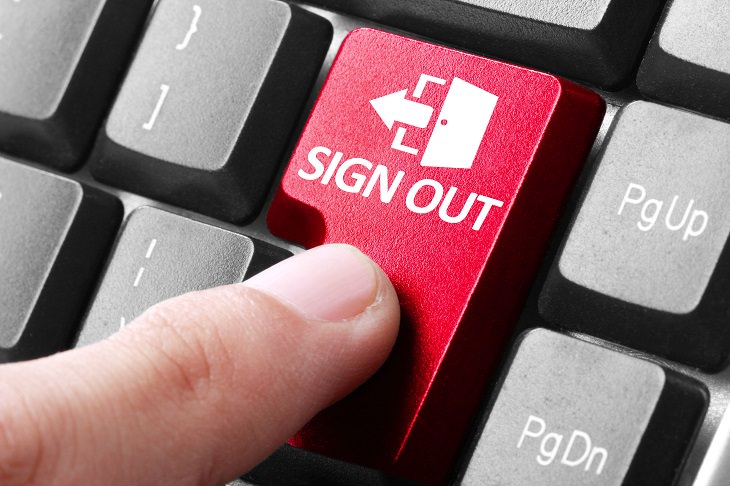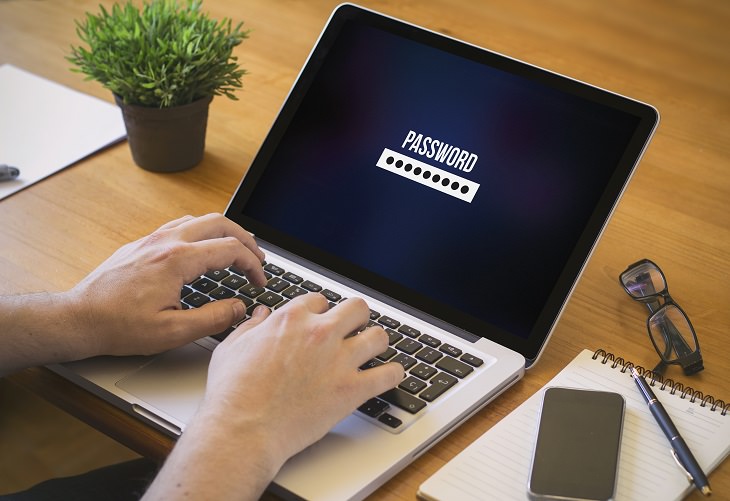
The internet is such a central part of our lives now, with all of our correspondence via email and instant messaging and the ability to purchase anything we need online. However, the ease that the internet has introduced to our lives does not come without a cost. That cost? Some of our privacy. Identity theft is not a rare incident and doesn't have to include a lost wallet. Today's hackers and cybercriminals break into personal email and social accounts and use information found there to transfer money or blackmail others with it.
There are many ways to defend yourselves, but here are the 7 basic things you need to do to avoid being easy targets, and they're not hard to do, so pass them along and make everyone safer.

When you browse the web, information is stored on your browsing history, images, videos, and text in a folder called a 'cache'. The cache stores all the information about a certain webpage so that it loads faster the next time you visit.
By using the 'incognito' mode (available on Safari, Chrome, Internet Explorer and Firefox), the information about your searching habits isn't stored and every time you visit the website will be the first time. While there are certain upsides of allowing the website to suit itself to you, there may be information, like your credit card or banking details, that you don't want the website to remember. This is the time to switch on the 'incognito' function in your browser's tools.
Tip: Try to carry out all online financial dealings (e.g. making a credit card purchase) on a secure page (look for the https instead of the regular http). This gives you some protection from hackers, but it doesn't mean the site itself cannot keep your details. Most do so only to confirm your identity.
It's always a good idea to secure your devices with a password. Although you may find this a nuisance, especially if you struggle to remember passwords, it is important that you and only you have access to your devices just in case they end up in the wrong hands. If your computer or phone has a password, no one but you can access the information, even if you lose it. So think of a simple password that will be easy enough for you to remember and use it on your computer and phone. This simple step could save you a lot of worry and headaches in the case that your device is lost or stolen.
Tip: Don't forget, it's better to just lose the device than lose the device AND the personal information you have stored on it.

When you are using a social media site, or just your email account, it is important that you remember to log or sign out after you've finished using it.
This will ensure that no one else can enter your account when you leave the site or that your settings are not saved on the computer for the next user. This is an especially important step for those that share their computer with others or leave their computer at work or home. If you are worried about forgetting your passwords and usernames, write them down in a safe and memorable place.
Tip: There are programs that are safe to use and remember your passwords for you, such as RoboForm.
If you are worried about what others may be writing about you online, or want to look out for a child or friend on the web, you can use a free service called Google alerts. By setting a Google alert with your name, every time something is said about you online, you will be sent an alert to your inbox. It is simple to set up by going to google.com/alerts. There, type in your name or any variations of it. You can choose how often you'd like to be notified as well as what kinds of posts are relevant to you.
Tip: Make sure you put quotations around your name so the search engine knows exactly what to look for (Example: "James Dean").

Probably the most important tip on this list. Believe it or not, if someone gets ahold of your username, it may be easier than you think to get a hold of your password. A lot has been made of hackers being geniuses who crack complex codes. The truth is, most of them are just very good at guessing passwords or have made programs that do that for them.
Your best bet is to first, make sure that your passwords are different for every site and that they aren't too simple, like '1234' or your birthday. Instead, use a word that has no context to anyone but you (and especially not something that can be found on your social profile) or even a random string of letters and numbers (although of course, those are hard to remember).
Tip: A great password is one that is easy to remember but uses unusual characters, for example: "iSem0untain" instead of "ice-mountain".
While they may be a bit confusing, it is important to check the privacy settings of your social media and email accounts to make sure that you aren't sharing private information. This is important because many of these sites change their privacy settings regularly (sometimes without notifying you). If there is a setting you don't understand, make sure to look it up. You should know about all the privacy options available so you can apply them when you need it most.
Tip: Make sure to read all the options carefully before choosing your desired level of security.
As mentioned above, when you browse the web, information about the sites you visited is saved in a 'cache', or file of all your internet information. If you share a computer with your family or use it in a public place (including your work), make sure you clean up your browser history each month to make sure that no one can see what you see on the web, which may include sensitive, personal or financial information. This can include your credit card information, identification numbers and so on, so this is an important step to remember if you are concerned about your online security.
Tip: Most browsers have the erase history option in either their privacy or history menus.
So keep in mind, while the internet is an amazing tool and a fun opportunity to add to your knowledge, it's important to remember to have fun while keeping yourself secure and safe from identity theft.